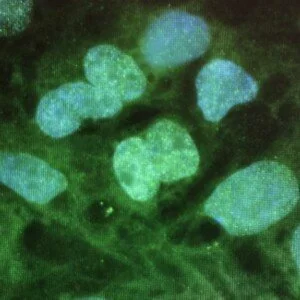Washington: Using a popular genome-editing system, scientists have for the first time devised a new strategy to precisely modify human T-cells, also called immune cells.
Because these immune-system cells play important roles in a wide range of diseases – from diabetes and AIDS to cancer – the achievement provides a versatile new tool for research on T cell function, researchers from University of California-San Francisco have reported.
The discovery also opens new avenues for therapies based on the genome-editing system known as CRISPR/Cas9 for many serious health problems.
Genome editing in human T-cells has been a notable challenge for the field. “There are a lot of potential therapeutic applications,” said Alexander Marson, senior and co-corresponding author of the study.
Using their novel approach, the scientists were able to disable a protein on the T-cell surface called CXCR4, which can be exploited by HIV when the virus infects T cells and causes AIDS.
The group also successfully shut down PD-1, a protein that has attracted intense interest in the burgeoning field of cancer immunotherapy.
Using drugs to block PD-1 coaxes T cells to attack tumours.
The gene-editing system has captured the imagination of both scientists and the general public because it makes it possible to easily and inexpensively edit genetic information in virtually any organism.
T cells, which circulate in the blood, are an obvious candidate for medical applications of the technology.
These cells not only stand at the centre of many disease processes but can also easily gathered from patients, edited with CRISPR/Cas9, then returned to the body to exert therapeutic effects.




No Comments